Keep Your Aging Bulldog Agile: A Guide to Joint Health
Degenerative joint disease is one of the health issues that senior bulldogs are very much prone to. Besides setting off inflammation and pain, this problem can even disrupt ideal joint function—not to mention causing significant damage in the affected areas in severe cases.
Whether you have a much older English bulldog or perhaps the American or French bulldog varieties as your canine best friend, chances are your precious pet is going to be affected by joint problems during his golden years.
With respect to senior bulldog health, promoting and supporting healthy joints is something you should never overlook.
But unlike what a lot of people mistakenly think, there's no need to resort to conventional medicines just yet in this scenario. What's really interesting is that there are simple and practical ways to preserve joint function and health in senior bulldogs using natural means.
Make sure you follow along to discover what these are.
A Quick Overview of Joint Health in Aging Bulldogs
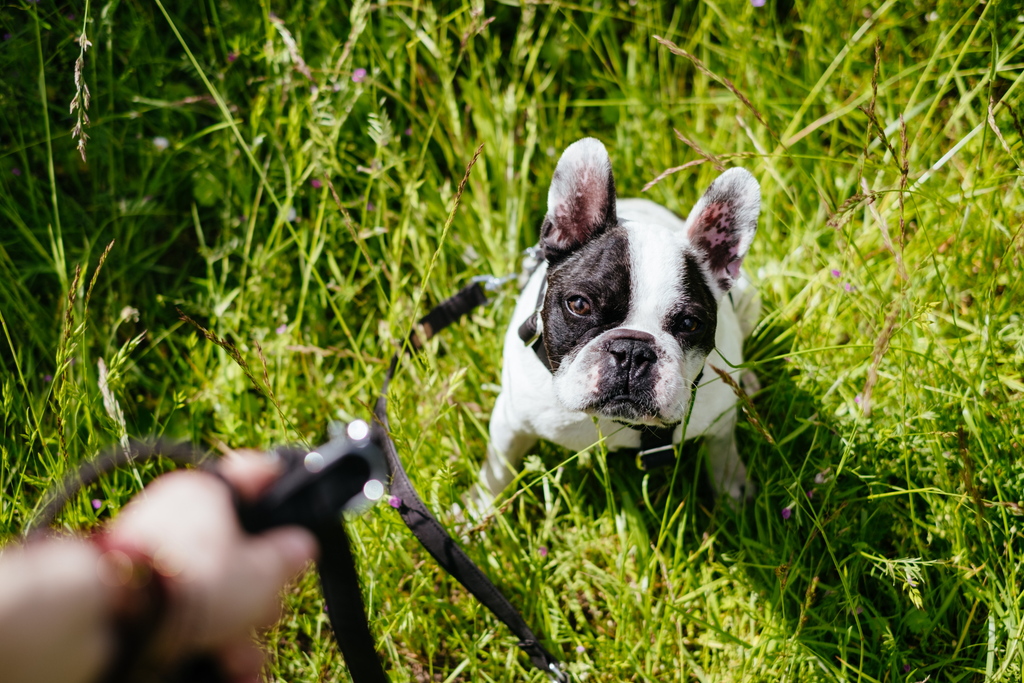
Believe it or not, the body of your senior bulldog is going through a lot of physiological changes right now. These include a slower metabolism rate, his gastrointestinal tract won't be able to absorb beneficial nutrients from food like it used to and his overall immune system health will be weakened.
There will be a rise in vulnerability to joint conditions as dogs become older
Moreover, as a bulldog ages, his body will also become more prone to degenerative diseases that can cause joint damage and cartilage breakdown like arthritis. Apart from causing pain and discomfort in the affected joints, degenerative disease is also a progressive condition that will just get worse over time.
Early detection means proper management and support
This is the biggest reason why early intervention and detection is a must when it comes to health conditions concerning the joints. It is crucial to take note that the presence of this issue will significantly affect your dog's mobility in a negative way if you ignore it.
Is Degenerative Joint Disease in Senior Bulldogs Common?
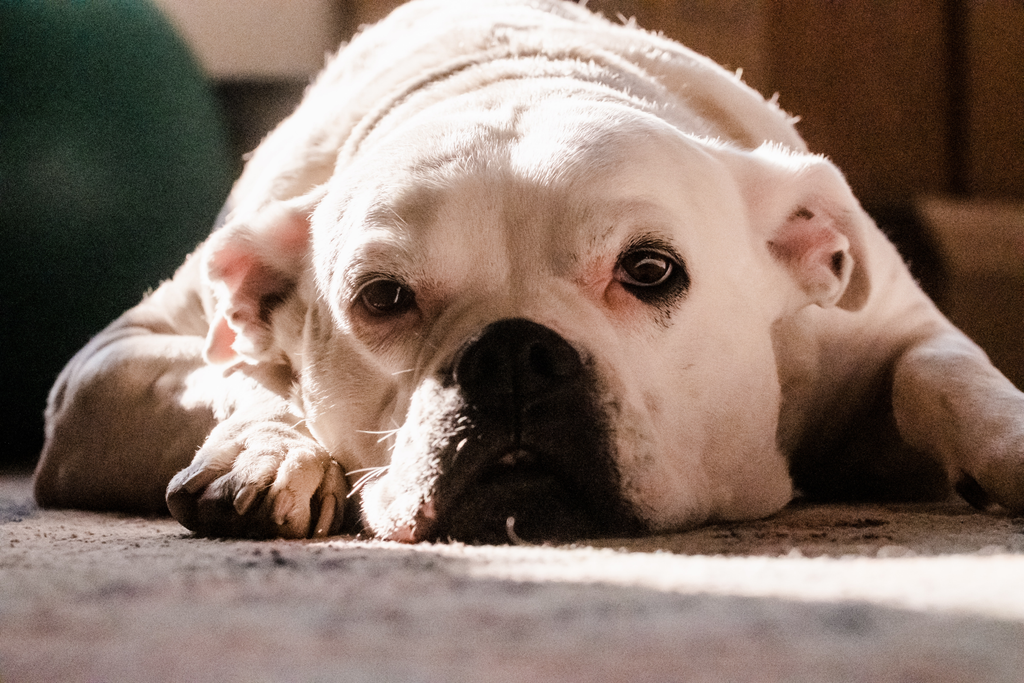
Akin to all canine companions of different dog breeds during their golden years, your senior bulldog is highly likely to have problems with his joints sooner or later.
These issues are prevalent among different bulldog varieties such as French bulldogs, English bulldogs, and American bulldogs as well as other types like the Serrano, Campeiro, and Continental.
Degenerative joint disease can drastically affect your aging bulldog's quality of life
Degenerative joint disease can be so harsh in some cases that it won't just cause pain and discomfort in the affected joint. It can even disrupt muscle mass and may subsequently set off atrophy in a much older dog.
Given that your senior pet's immune defense becomes inadequate in reducing inflammation and pain relief, his quality of life is going to be drastically affected in the process.
Hereditary joint issues and senior dogs
What's really alarming is that some hereditary conditions like elbow dysplasia and hip dysplasia can suddenly get in the picture when dogs reach their senior years. These problems are not typically observed in bulldog puppies or perhaps French bulldogs and English bulldogs in their middle age.
It is noteworthy that physical therapy—or even invasive procedures like laser therapy or surgery—will already be needed in some cases of dysplasia in the hips and elbows.
Some aging dogs can't even take a few steps at a time or cannot tolerate even the most moderate exercise due to the pain.
A quick look at dysplasia affecting the elbows and hips
Elbow dysplasia is a condition where the bones of the elbow joint, particularly the ulna, radius, and humerus, do not develop properly. As a dog ages, these bones will tend to rub against one another instead of interlocking and moving in a harmonious manner.
On the other hand, hip dysplasia is characterized by the abnormal growth and development of the hip joint. It can be either too loose or too tight, leading to chronic pain and discomfort, even with the slightest movement.
This problem can trigger severe mobility issues in your senior dog if not detected early and properly managed.
Signs That Aging Dogs Are Suffering From Joint Pain and Related Conditions
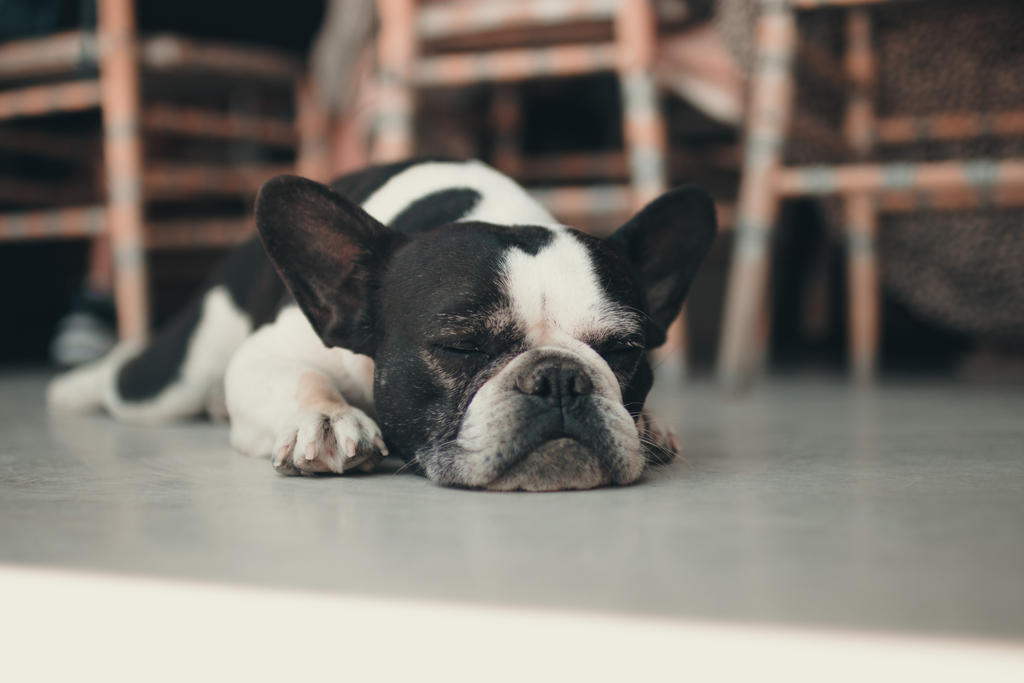
Although joint problems can unexpectedly pop up when your dog becomes a canine senior citizen, there are key indicators that serve as a warning of their onset. As we emphasized earlier, early detection plays a very important role in not just zeroing in on the issue but also providing the care and attention much older dogs need to keep them from getting worse.
There is a big possibility that your aging French bulldog or English bulldog is suffering from joint inflammation or some related condition if he exhibits the following symptoms.
It is crucial to remember that you are helping your senior dog have the quality of life he deserves when you promote joint health.
Sudden stiffness in movement
While they may not be as nimble and agile compared to other dogs, bulldogs can still be rather active and playful even during their senior years. However, if you notice your aging dog suddenly taking on a "stiffer" bearing during regular movement or exercise, chances are he may experiencing some form of joint issue.
These stiff movements may not be as apparent as you think. It can start with a bit of hesitation climbing the stairs, taking too long to get to the door when you're going for a walk, or perhaps not being as curious when he sees, smells, or hears something for the first time.
Your French bulldog or English bulldog may even avoid exercise altogether in this scenario.
Favoring a particular limb or having a limp
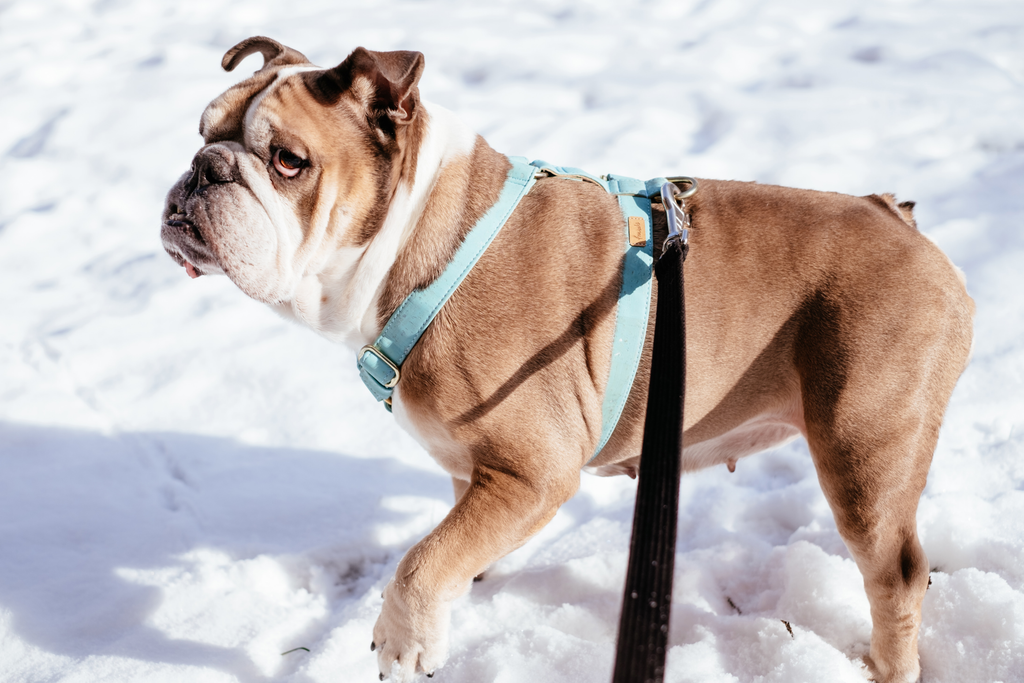
Dogs usually limp or favor a particular limb as a way to decrease pain. While your aging dog has quite a high pain tolerance, seeing him doing this already denotes that the discomfort he is going through is already unbearable.
This simply means your much older bulldog is telling you that he is suffering from a degenerative joint disease like arthritis and you need to reduce inflammation immediately. Although this usually affects a single limb at a time, it is still possible that the pain and discomfort will be so great that it can have an impact on multiple limbs.
Difficulty in standing or sitting
Another indicator of a joint condition among much older English and French bulldogs is difficulty in shifting from a sitting position to a standing one and vice versa. You may even notice your aging dog straining when this happens.
In this situation, your pooch can still sit and stand, but it will take him a lot of time and effort.
We'd just like to stress that weight management plays a crucial factor when it comes to overall joint health and function. Having extra weight can put more pressure on the affected joints and will aggravate the pain and discomfort.
Unexpected changes in gait or posture
If your dog suddenly walks in a funny way or if his posture becomes a bit crooked, these are already signs that he may be going through a joint condition. Some dogs may even experience bouts of breathing issues because of the discomfort they are experiencing.
Due to the stocky build and short legs of an English bulldog, he can even look like he's moving in a zigzag pattern when walking when he has joint problems. Immediately reach out to a pet homeopathy expert or a vet as soon as you observe this.
Chewing or licking at a certain area
Akin to most dogs, aging bulldogs will tend to chew or lick a particular area where they feel itchiness or pain like in the case of arthritis. If you've already determined that the issue is not to reduce itchy skin, then chances are it's going to be a joint condition.
It is important to keep in mind that excessive chewing and licking won't just result in chafing and irritation, but also hair loss sooner or later. Getting your hands on a natural anti-inflammatory will help to promote healthy skin in this situation.
Drastic change in behavior or mood
Another sign that your much older bulldog is suffering from a joint issue is that his overall mood and disposition will change all of a sudden. Besides being more sulky and glum, your dog will also prefer to hide under the furniture or ignore you completely instead of going on long walks or playing with puzzle toys.
A quick reminder about the symptoms of joint conditions
We'd just like to highlight that these indicators of joint conditions in aging bulldogs may be observed individually or in a simultaneous manner. We're nearly on the topic of how to naturally reduce inflammation when these problems pop up while keeping your older dog's joints healthy so make sure you read on.
Are There Natural Ways to Deal With Joint Issues?
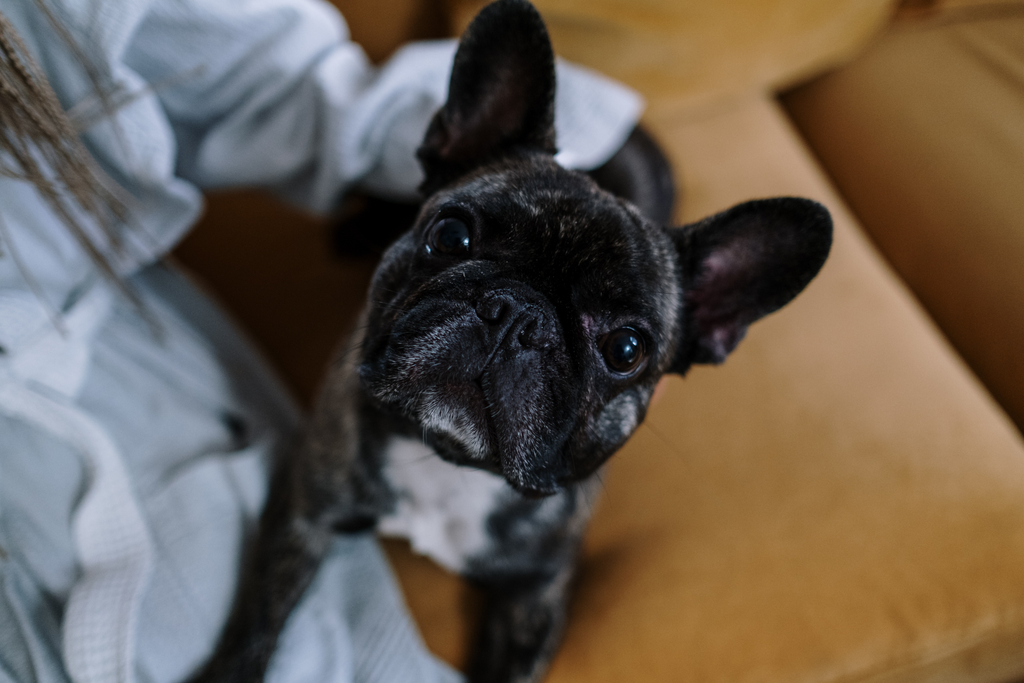
Before we get to tips, we'd just like to reiterate that you don't have to immediately resort to conventional means when dealing with joint problems in much older bulldogs (or senior dogs of other breeds.
You can go for premium natural joint supplements with fatty acids and similar ingredients to deal with these issues.
Choosing the right joint supplement can be a bit tricky
However, given the number of joint supplements that claim to promote joint health, you can get your hands on these days, it is important that you only choose the ones that are specifically formulated with the right ingredients to reduce inflammation while making your dog comfortable and happy at the same time.
Being thorough with your choices is a must when it comes to joint supplements
Again, don't just pick a joint supplement for the sake of choosing one. Get your hands on a joint supplement that is designed to help you give your dog the support and alleviation he needs without possibly affecting his heart health and kidney function, among others, in the process.
Simple Tips to Keep Your Much Older Dog's Joints Healthy
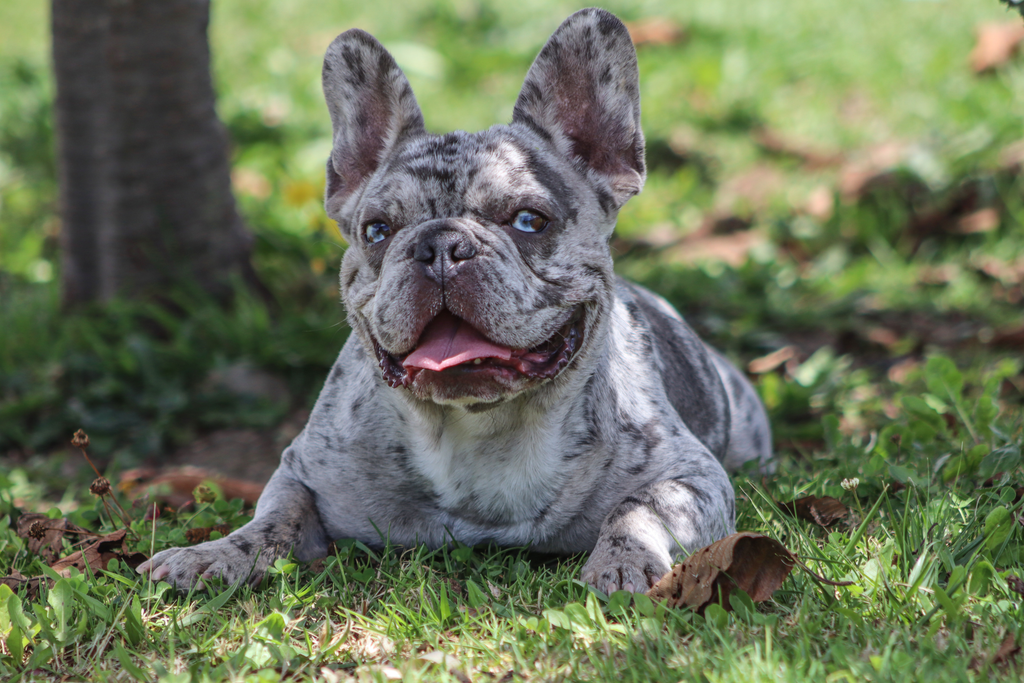
Contrary to popular belief, promoting and maintaining ideal joint health in dogs is not that complicated. Make sure you take note of the following simple tips and pointers because they won't just help protect your bulldog from joint conditions, but may also assist in improving function of the joints as well:
A regular physical exam helps detect problems early on.
Degenerative joint diseases in dogs like arthritis can be detected through regular checkups with a vet or through an online homeopathic consultation. Make sure you schedule a checkup at least every six (6) months or when you notice that your bulldog is exhibiting the signs that we've indicated earlier.
Give your senior bulldog the proper diet.
A healthy weight is essential with respect to keeping joints in tiptop shape. When your aging bulldog has constant weight gain, this will just put more pressure on his joints and will accelerate the onset of any problem.
Breathing issues can also develop with excessive weight gain.
Besides providing him with the right food, serving the appropriate amounts is also crucial in maintaining a healthy weight in dogs. Integrating foods with joint supplements that are beneficial to the joints like those with fatty acids or derived from green-lipped mussel (they also offer anti-inflammatory benefits) is also a smart way to pull this off.
Setting up a low-impact workout routine is essential.
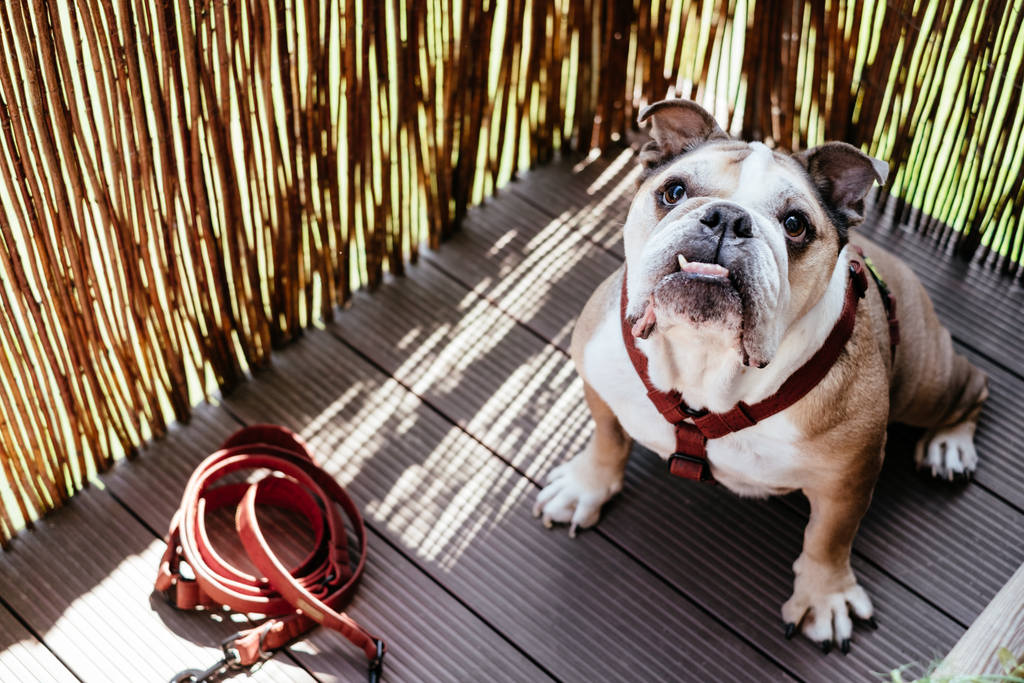
Much older bulldogs still require regular exercise to keep their ankles, knees, wrists, elbows, hips, and shoulders healthy. However, they will need a low-impact workout routine because it is more appropriate for their age.
Playing fetch, learning new commands and tricks, brisk walks, and engaging your dog with puzzle toys are just some of the activities you can go for. A quick note: always remember to have regular breaks when you exercise senior dogs.
Always be on the lookout for signs of joint pain and inflammation.
Joint conditions like arthritis are typically characterized by symptoms. It is essential that you regularly determine if your aging bulldog is already displaying the same so you can deal with the problem as soon as possible.
Having the right joint supplements or an emergency kit that promotes joint health at home will do wonders.
Provide your pet with extra comfort and safety.
Much older bulldogs require a lot more care and attention compared to their younger counterparts. Giving your dog the quality of life he deserves at this point of his life involves providing him access to safer and more comfortable surroundings for his age.
This also means not leaving joint conditions up to chance when it comes to your choice of premium natural joint supplements.


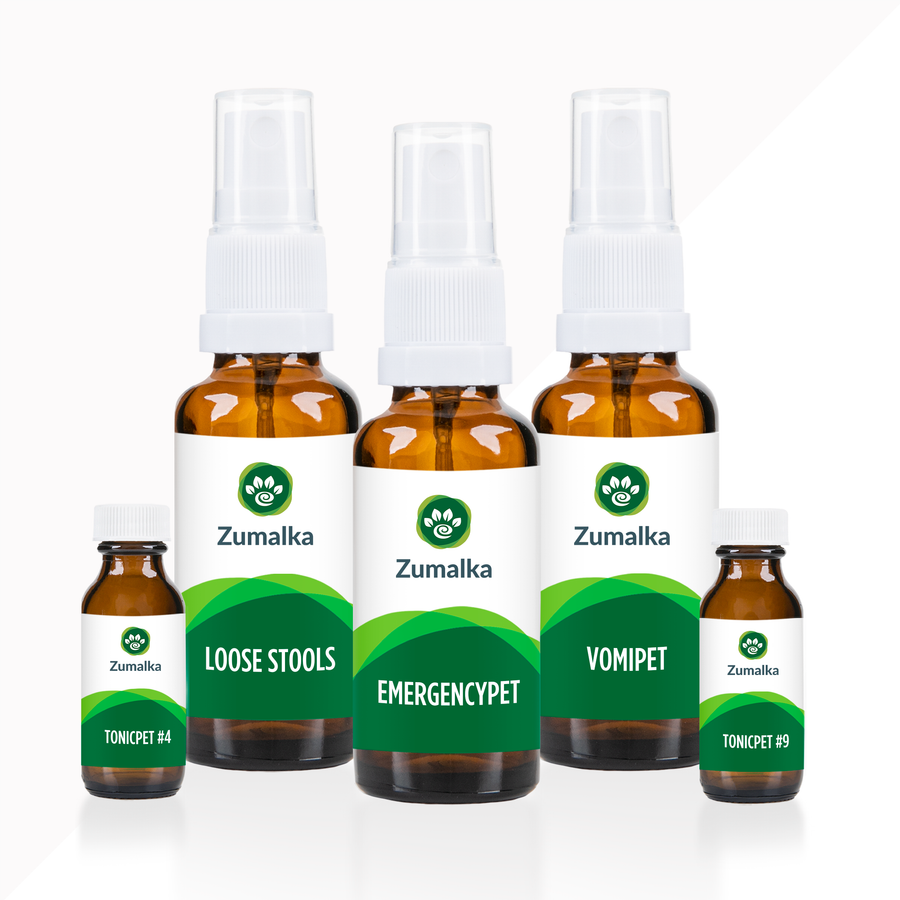
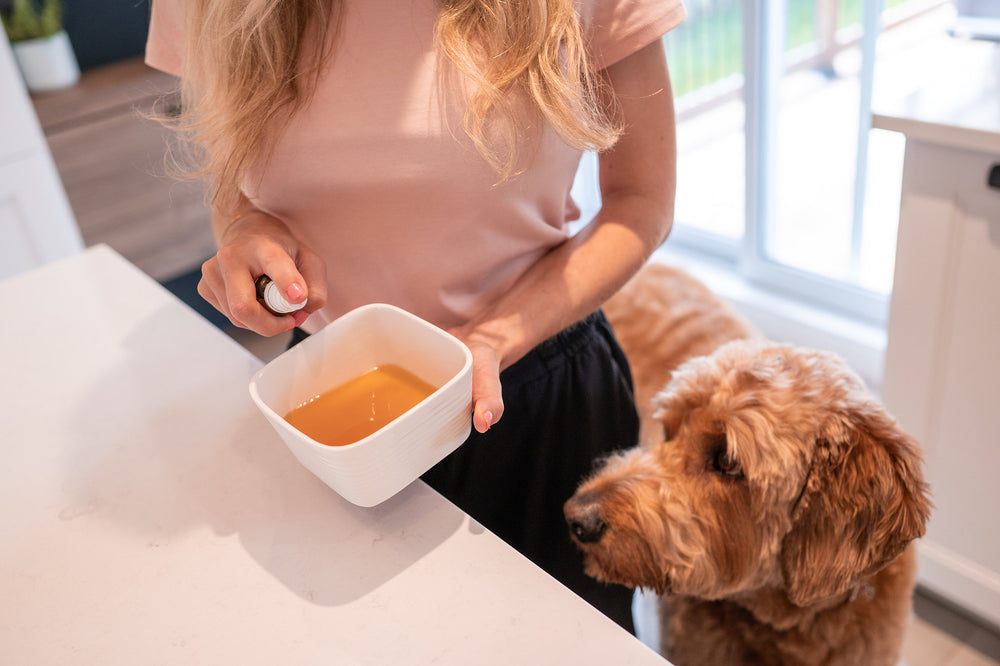


Leave a comment